Bettamousse 0.1% W/W Cutaneous Foam
PATIENT INFORMATION LEAFLET Rf 1339/290616/1/F
. HOW TO STORE BETTAMOUSSE
• Keep out of the sight and reach of children
• Do not store above 25°C.
• Do not refrigerate.
• Protect from sunlight and any other source of direct heat as this product is very flammable.
• Do not pierce or burn the can, even when empty.
• Do not use Bettamousse after the expiry date shown on the carton or canister label. If your doctor tells you to stop using the medicine, take any remaining medicine back to the pharmacist for safe disposal. Only keep this medicine if your doctor tells you to.
• If your medicine becomes discoloured or shows any signs of deterioration, ask your pharmacist who will advise you what to do.
• Medicines should not be disposed of via wastewater or household waste.
Ask your pharmacist how to dispose of medicines no longer required. These measures will help to protect the environment
Blind or partially sighted?
Is this leaflet hard to see or read? Phone Lexon (UK) Limited,
Tel: 01527 505414 for help.
Read all of this leaflet carefully before you start using this medicine because it contains important information for you.
• Keep this leaflet. You may need to read it again.
• If you have any further questions, ask your doctor or pharmacist.
• This medicine has been prescribed for you only. Do not pass it on to others. It may harm them, even if their signs of illness are the same as yours.
• If you get any side effects, talk to your doctor or pharmacist or nurse. This includes any possible side effects not listed in this leaflet. See section 4.
• If you have any kind of infection of the scalp, unless this is already being treated
• On a child under 6 years of age.
If any of the above applies to you, talk to your doctor or pharmacist.
Warnings and precautions
Talk to your doctor or pharmacist before using Bettamousse if:
• You have any kind of skin infection
• You have open wounds on your scalp
• You are taking any other medicine, including medicines obtained without a prescription.
Your medicine is called Bettamousse 0.1% w/w Children and adolescents
cutaneous foam and will be referred to as Do not give this medicine to children under the
Bettamousse throughout the leaflet. age of 6 years.
What Bettamousse contains
• This product contains betamethasone 0.1% w/w (as valerate)
• The other ingredients are cetyl alcohol, stearyl alcohol, polysorbate 60, ethanol, purified water, propylene glycol, citric acid anhydrous, potassium citrate and butane/propane.
What Bettamousse looks like and contents of
the pack
• Betamethasone is a white foam mouse and is available in an aluminium can containing 100g of the foam.
What is in this leaflet
1. What Bettamousse is and what it is used for
2. What you need to know before you use Bettamousse
3. How to use Bettamousse
4. Possible side effects
5. How to store Bettamousse
6. Contents of the pack and other information.
1. WHAT BETTAMOUSSE IS AND WHAT IT IS USED FOR
Bettamousse contains the active substance Betamethasone as valerate.
Bettamousse belongs to a group of medicines called corticosteroids (‘steroids' for short).
Manufacturer and Licence Holder
This product is manufactured by Pharmasol Limited, North Way, Walworth Industrial Estate, Andover, Hampshire, SP10 5AZ, United Kingdom and is procured from within the EU and repackaged by the Product Licence Holder: Lexon (UK) Limited, Unit 18, Oxleasow Road, East
Bettamousse is used to treat skin disorders of the scalp such as psoriasis (raised red patches of skin covered in silvery scales) that may feel itchy, tight or sore. Bettamousse works by reducing inflammation (redness, itching and soreness). It is important to use this medicine to prevent damage to the skin and infections from developing.
Other medicines and Bettamousse
Tell your doctor or pharmacist if you are taking, using, have recently taken or used or might take or use any other medicines.
Pregnancy and breast-feeding
If you are pregnant or breast-feeding, think you may be pregnant or are planning to have a baby, ask your doctor or pharmacist for advice before taking this medicine.
Driving and using machines
There are no known effects on driving or using machines.
Bettamousse contains Cetyl Alcohol and Stearyl Alcohol which may cause local skin reactions (e.g. contact dermatitis)
Bettamousse contains propylene glycol
which may cause skin irritation.'
|
2. WHAT YOU NEED TO KNOW BEFORE YOU | ||
|
POM |
PL 15184/1339 |
USE BETTAMOUSSE |
Bettamousse 0.1 % w/w cutaneous foam
Bettamousse is a registered trademark of RPH Pharmaceuticals AB.
Do not use Bettamousse:
• If you are allergic to betamethasone valerate or any of the other ingredients of this medicine (listed in section 6). Some of these ingredients (stearyl alcohol, cetyl alcohol and propylene glycol) may cause local skin reactions (e.g. contact dermatitis).
3. HOW TO USE BETTAMOUSSE Always use this medicine exactly as your doctor or pharmacist has told you. Your dose will be shown clearly on the label that your pharmacist puts on your medicine. Check with your doctor or pharmacist if you are not sure.
Remember:
• Use as little Bettamousse as possible for the shortest possible time
• Avoid contact with your eyes. If Bettamousse gets into your eyes, rinse well with cold water.
If your eyes continue to sting, contact your doctor
• Avoid contact with the inside of your nose and mouth
• Avoid contact with any open wounds.
The recommended dose is Adults:
• No more than a golfball sized amount of mousse
• Massage into the affected areas of the scalp twice a day (in the morning and evening)
• If there is no improvement in your condition after 7 days, stop using Bettamousse and see your doctor again.
Use in children over 6 years of age:
• The dose depends on their physical size
• The usual dose for children is less than for adults. For example, for a child half the size of an adult, use no more than half a golf ball sized amount of mousse
• Massage into the affected area of the scalp twice a day (in the morning and evening)
• Do not use Bettamousse for more than 5 to 7 days on children. If the symptoms have not improved see your doctor again
Do not use in children under 6 years of age
As symptoms improve For adults and children: Where there is some improvement in symptoms, Bettamousse can be applied just once a day. If the condition continues to get better, it may be possible to apply Bettamousse once every few days, to keep the symptoms from coming back.
Infections
If you have a skin infection your doctor will give you another medicine to treat the infection Whilst you have an infection, your doctor may tell you to stop using Bettamousse.
If you are not sure about how much mousse to use, ask your doctor or pharmacist.
Instructions for use:
1. Remove the cap.
2. Turn the can upside down and squirt the required amount of mousse onto a clean saucer or something similar. The mousse melts when it touches your skin, so do not squirt it in to your hand.
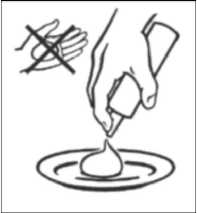
3. Massage the mousse into the affected areas of your scalp, and not your hair. Allow your hair to dry naturally.
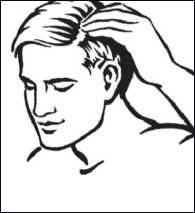
4. Wash your hands immediately after using the mousse.
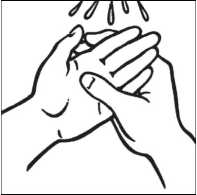
6. You can wash and dry your hair immediately before applying the mousse.
This product is flammable. Do not use Bettamousse near a naked flame or direct source of heat. Do not smoke while using or holding the can.
Medical check-ups
If you use this medicine for a long period of time, your doctor may ask you to have check-ups.
These are to make sure that your medicine is working properly and that the dose you are taking is right for you.
If you use more Bettamousse than you should
Wash your scalp straight away and start again. It is unlikely that you will suffer side-effects from using too much on one occasion. If you are concerned, contact the nearest hospital casualty department or your doctor.
Using more than the recommended dose of Bettamousse for a long time can lead to a number of side effects (see section 4).
If you forget to use Bettamousse
Do not use a double dose to make up for a forgotten dose. Simply take the next dose as planned.
If you stop using Bettamousse
Do not stop using Bettamousse without first talking to your doctor.
Your condition may return after you stop using Bettamousse. If this happens, talk to your doctor as soon as possible.
If you have any further questions on the use of this medicine, ask your doctor or pharmacist.
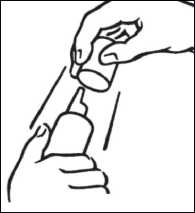
5. Do not wash your hair straight after applying the mousse. Let the mousse work overnight or through the day.
2. Turn the can upside down and squirt the required amount of mousse onto a clean saucer or something similar. The mousse melts when it touches your skin, so do not squirt it in to your hand.
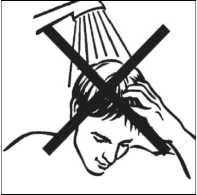
4. POSSIBLE SIDE EFFECTS
Like all medicines Bettamousse can cause side effects, although not everybody gets them.
Stop using Bettamousse and seek immediate medical advice if you have any of the following symptoms:
• Headache
• Stinging
• Itching.
Uncommon: may affect up to 1 in 100 people)
• Infection of the skin
• Thinning of the skin
• Marking of the skin (such as dark spots or lines)
• Red rash on the face
• Bruising easily.
Rare: may affect up to 1 in 1,000 people)
• Sensitivity reactions such as itching, redness and stinging
• Lighter or darker patches of skin
• Hair loss
• Infection of the hair follicles
• Red spots on the skin.
Not known: frequency cannot be estimated from the available data
• Worsening of the scalp condition, causing pus-filled ulcers to form
• Acne
• Purple stained skin
• Rash around the mouth.
Effects of using a high dose of Bettamousse for a long time:
• Extra hair growth
• Changes in skin colour
• Irregular periods in women,
• Water retention (bloated feeling)
• Mood changes or sleep problems
• Blurred vision or pain in the eye
• Stomach upsets or discomfort
• Acne
• Headaches.
These effects are more likely to happen in children, and if dressings are applied to cover the scalp after Bettamousse has been applied. The frequency of these effects on prolonged use is unknown.
Reporting of side effects
If you get any side effects, talk to your doctor, pharmacist or nurse. This includes any possible side effects not listed in this leaflet. You can also report side effects directly via the Yellow Card Scheme at www.mhra.gov.uk/yellowcard.
By reporting side effects, you can help provide more information on the safety of this medicine. United Kingdom: You catl also report side effects directly via Yellow Card Scheme on the MHRA website www.mhra.gov.ukfyellowcard).By reporting side effecrs you can help provide more information on the safety of this medicine
. HOW TO STORE BETTAMOUSSE
• Keep out of the sight and reach of children
• Do not store above 25°C.
• Do not refrigerate.
• Protect from sunlight and any other source of direct heat as this product is very flammable.
• Do not pierce or burn the can, even when empty.
• Do not use Bettamousse after the expiry date shown on the carton or canister label. If your doctor tells you to stop using the medicine, take any remaining medicine back to the pharmacist for safe disposal. Only keep this medicine if your doctor tells you to.
• If your medicine becomes discoloured or shows any signs of deterioration, ask your pharmacist who will advise you what to do.
• Medicines should not be disposed of via wastewater or household waste.
Ask your pharmacist how to dispose of medicines no longer required. These measures will help to protect the environment
Blind or partially sighted?
Is this leaflet hard to see or read? Phone Lexon (UK) Limited,
Tel: 01527 505414 for help.
Read all of this leaflet carefully before you start using this medicine because it contains important information for you.
• Keep this leaflet. You may need to read it again.
• If you have any further questions, ask your doctor or pharmacist.
• This medicine has been prescribed for you only. Do not pass it on to others. It may harm them, even if their signs of illness are the same as yours.
• If you get any side effects, talk to your doctor or pharmacist or nurse. This includes any possible side effects not listed in this leaflet. See section 4.
• If you have any kind of infection of the scalp, unless this is already being treated
• On a child under 6 years of age.
If any of the above applies to you, talk to your doctor or pharmacist.
Warnings and precautions
Talk to your doctor or pharmacist before using Bettamousse if:
• You have any kind of skin infection
• You have open wounds on your scalp
• You are taking any other medicine, including medicines obtained without a prescription.
Your medicine is called Bettamousse 0.1% w/w Children and adolescents
cutaneous foam and will be referred to as Do not give this medicine to children under the
Bettamousse throughout the leaflet. age of 6 years.
What Bettamousse contains
• This product contains betamethasone 0.1% w/w (as valerate)
• The other ingredients are cetyl alcohol, stearyl alcohol, polysorbate 60, ethanol, purified water, propylene glycol, citric acid anhydrous, potassium citrate and butane/propane.
What Bettamousse looks like and contents of
the pack
• Betamethasone is a white foam mouse and is available in an aluminium can containing 100g of the foam.
What is in this leaflet
1. What Bettamousse is and what it is used for
2. What you need to know before you use Bettamousse
3. How to use Bettamousse
4. Possible side effects
5. How to store Bettamousse
6. Contents of the pack and other information.
1. WHAT BETTAMOUSSE IS AND WHAT IT IS USED FOR
Bettamousse contains the active substance Betamethasone as valerate.
Bettamousse belongs to a group of medicines called corticosteroids (‘steroids' for short).
Manufacturer and Licence Holder
This product is manufactured by Aerosol Service Italiana S.r.l., Via del Maglio No.6, 23868 Valmadrera (Lecco), Italy and is procured from within the EU and repackaged by the Product Licence Holder: Lexon (UK) Limited, Unit 18, Oxleasow Road, East Moons Moat, Redditch,
Bettamousse is used to treat skin disorders of the scalp such as psoriasis (raised red patches of skin covered in silvery scales) that may feel itchy, tight or sore. Bettamousse works by reducing inflammation (redness, itching and soreness). It is important to use this medicine to prevent damage to the skin and infections from developing.
Other medicines and Bettamousse
Tell your doctor or pharmacist if you are taking, using, have recently taken or used or might take or use any other medicines.
Pregnancy and breast-feeding
If you are pregnant or breast-feeding, think you may be pregnant or are planning to have a baby, ask your doctor or pharmacist for advice before taking this medicine.
Driving and using machines
There are no known effects on driving or using machines.
Bettamousse contains Cetyl Alcohol and Stearyl Alcohol which may cause local skin reactions (e.g. contact dermatitis)
Bettamousse contains propylene glycol
which may cause skin irritation.'
|
2. WHAT YOU NEED TO KNOW BEFORE YOU | ||
|
POM |
PL 15184/1339 |
USE BETTAMOUSSE |
Bettamousse 0.1 % w/w cutaneous foam
Bettamousse is a registered trademark of RPH Pharmaceuticals AB.
Do not use Bettamousse:
• If you are allergic to betamethasone valerate or any of the other ingredients of this medicine (listed in section 6). Some of these ingredients (stearyl alcohol, cetyl alcohol and propylene glycol) may cause local skin reactions (e.g. contact dermatitis).
3. HOW TO USE BETTAMOUSSE Always use this medicine exactly as your doctor or pharmacist has told you. Your dose will be shown clearly on the label that your pharmacist puts on your medicine. Check with your doctor or pharmacist if you are not sure.
Remember:
• Use as little Bettamousse as possible for the shortest possible time
• Avoid contact with your eyes. If Bettamousse gets into your eyes, rinse well with cold water.
If your eyes continue to sting, contact your doctor
• Avoid contact with the inside of your nose and mouth
• Avoid contact with any open wounds.
The recommended dose is Adults:
• No more than a golfball sized amount of mousse
• Massage into the affected areas of the scalp twice a day (in the morning and evening)
• If there is no improvement in your condition after 7 days, stop using Bettamousse and see your doctor again.
Use in children over 6 years of age:
• The dose depends on their physical size
• The usual dose for children is less than for adults. For example, for a child half the size of an adult, use no more than half a golf ball sized amount of mousse
• Massage into the affected area of the scalp twice a day (in the morning and evening)
• Do not use Bettamousse for more than 5 to 7 days on children. If the symptoms have not improved see your doctor again
Do not use in children under 6 years of age
As symptoms improve For adults and children: Where there is some improvement in symptoms, Bettamousse can be applied just once a day. If the condition continues to get better, it may be possible to apply Bettamousse once every few days, to keep the symptoms from coming back.
Infections
If you have a skin infection your doctor will give you another medicine to treat the infection Whilst you have an infection, your doctor may tell you to stop using Bettamousse.
If you are not sure about how much mousse to use, ask your doctor or pharmacist.
Instructions for use:
1. Remove the cap.
2. Turn the can upside down and squirt the required amount of mousse onto a clean saucer or something similar. The mousse melts when it touches your skin, so do not squirt it in to your hand.
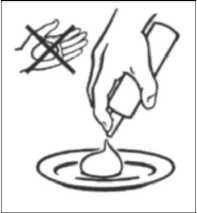
3. Massage the mousse into the affected areas of your scalp, and not your hair. Allow your hair to dry naturally.
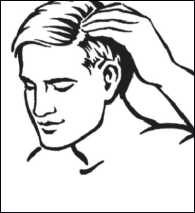
4. Wash your hands immediately after using the mousse.
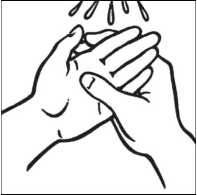
6. You can wash and dry your hair immediately before applying the mousse.
This product is flammable. Do not use Bettamousse near a naked flame or direct source of heat. Do not smoke while using or holding the can.
Medical check-ups
If you use this medicine for a long period of time, your doctor may ask you to have check-ups.
These are to make sure that your medicine is working properly and that the dose you are taking is right for you.
If you use more Bettamousse than you should
Wash your scalp straight away and start again. It is unlikely that you will suffer side-effects from using too much on one occasion. If you are concerned, contact the nearest hospital casualty department or your doctor.
Using more than the recommended dose of Bettamousse for a long time can lead to a number of side effects (see section 4).
If you forget to use Bettamousse
Do not use a double dose to make up for a forgotten dose. Simply take the next dose as planned.
If you stop using Bettamousse
Do not stop using Bettamousse without first talking to your doctor.
Your condition may return after you stop using Bettamousse. If this happens, talk to your doctor as soon as possible.
If you have any further questions on the use of this medicine, ask your doctor or pharmacist.
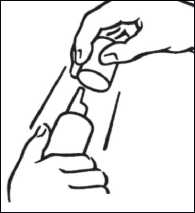
5. Do not wash your hair straight after applying the mousse. Let the mousse work overnight or through the day.
2. Turn the can upside down and squirt the required amount of mousse onto a clean saucer or something similar. The mousse melts when it touches your skin, so do not squirt it in to your hand.
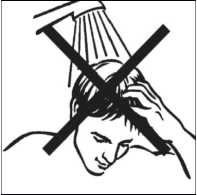
4. POSSIBLE SIDE EFFECTS
Like all medicines Bettamousse can cause side effects, although not everybody gets them.
Stop using Bettamousse and seek immediate medical advice if you have any of the following symptoms:
• Headache
• Stinging
• Itching.
Uncommon: may affect up to 1 in 100 people)
• Infection of the skin
• Thinning of the skin
• Marking of the skin (such as dark spots or lines)
• Red rash on the face
• Bruising easily.
Rare: may affect up to 1 in 1,000 people)
• Sensitivity reactions such as itching, redness and stinging
• Lighter or darker patches of skin
• Hair loss
• Infection of the hair follicles
• Red spots on the skin.
Not known: frequency cannot be estimated from the available data
• Worsening of the scalp condition, causing pus-filled ulcers to form
• Acne
• Purple stained skin
• Rash around the mouth.
Effects of using a high dose of Bettamousse for a long time:
• Extra hair growth
• Changes in skin colour
• Irregular periods in women,
• Water retention (bloated feeling)
• Mood changes or sleep problems
• Blurred vision or pain in the eye
• Stomach upsets or discomfort
• Acne
• Headaches.
These effects are more likely to happen in children, and if dressings are applied to cover the scalp after Bettamousse has been applied. The frequency of these effects on prolonged use is unknown.
Reporting of side effects
If you get any side effects, talk to your doctor, pharmacist or nurse. This includes any possible side effects not listed in this leaflet. You can also report side effects directly via the Yellow Card Scheme at www.mhra.gov.uk/yellowcard.
By reporting side effects, you can help provide more information on the safety of this medicine. United Kingdom: You catl also report side effects directly via Yellow Card Scheme on the MHRA website www.mhra.gov.ukfyellowcard).By reporting side effecrs you can help provide more information on the safety of this medicine
. HOW TO STORE BETTAMOUSSE
• Keep out of the sight and reach of children
• Do not store above 25°C.
• Do not refrigerate.
• Protect from sunlight and any other source of direct heat as this product is very flammable.
• Do not pierce or burn the can, even when empty.
• Do not use Bettamousse after the expiry date shown on the carton or canister label. If your doctor tells you to stop using the medicine, take any remaining medicine back to the pharmacist for safe disposal. Only keep this medicine if your doctor tells you to.
• If your medicine becomes discoloured or shows any signs of deterioration, ask your pharmacist who will advise you what to do.
• Medicines should not be disposed of via wastewater or household waste.
Ask your pharmacist how to dispose of medicines no longer required. These measures will help to protect the environment
Blind or partially sighted?
Is this leaflet hard to see or read? Phone Lexon (UK) Limited,
Tel: 01527 505414 for help.
Read all of this leaflet carefully before you start using this medicine because it contains important information for you.
• Keep this leaflet. You may need to read it again.
• If you have any further questions, ask your doctor or pharmacist.
• This medicine has been prescribed for you only. Do not pass it on to others. It may harm them, even if their signs of illness are the same as yours.
• If you get any side effects, talk to your doctor or pharmacist or nurse. This includes any possible side effects not listed in this leaflet. See section 4.
• If you have any kind of infection of the scalp, unless this is already being treated
• On a child under 6 years of age.
If any of the above applies to you, talk to your doctor or pharmacist.
Warnings and precautions
Talk to your doctor or pharmacist before using Bettamousse if:
• You have any kind of skin infection
• You have open wounds on your scalp
• You are taking any other medicine, including medicines obtained without a prescription.
Your medicine is called Bettamousse 0.1% w/w Children and adolescents
cutaneous foam and will be referred to as Do not give this medicine to children under the
Bettamousse throughout the leaflet. age of 6 years.
What Bettamousse contains
• This product contains betamethasone 0.1% w/w (as valerate)
• The other ingredients are cetyl alcohol, stearyl alcohol, polysorbate 60, ethanol, purified water, propylene glycol, citric acid anhydrous, potassium citrate and butane/propane.
What Bettamousse looks like and contents of the pack
• Betamethasone is a white foam mouse and is available in an aluminium can containing 100g of the foam.
Manufacturer and Licence Holder This product is manufactured by Recipharm Ltd, Ashton-under-Lyne, Lancashire, OL79RR, United Kingdom and is procured from within the EU and repackaged by the Product Licence Holder: Lexon (UK) Limited, Unit 18, Oxleasow Road, East Moons Moat, Redditch, Worcestershire, B98 0RE.
What is in this leaflet
1. What Bettamousse is and what it is used for
2. What you need to know before you use Bettamousse
3. How to use Bettamousse
4. Possible side effects
5. How to store Bettamousse
6. Contents of the pack and other information.
1. WHAT BETTAMOUSSE IS AND WHAT IT IS USED FOR
Bettamousse contains the active substance Betamethasone as valerate.
Bettamousse belongs to a group of medicines called corticosteroids (‘steroids' for short).
Bettamousse is used to treat skin disorders of the scalp such as psoriasis (raised red patches of skin covered in silvery scales) that may feel itchy, tight or sore. Bettamousse works by reducing inflammation (redness, itching and soreness). It is important to use this medicine to prevent damage to the skin and infections from developing.
Other medicines and Bettamousse
Tell your doctor or pharmacist if you are taking, using, have recently taken or used or might take or use any other medicines.
Pregnancy and breast-feeding
If you are pregnant or breast-feeding, think you may be pregnant or are planning to have a baby, ask your doctor or pharmacist for advice before taking this medicine.
Driving and using machines
There are no known effects on driving or using machines.
Bettamousse contains Cetyl Alcohol and Stearyl Alcohol which may cause local skin reactions (e.g. contact dermatitis)
Bettamousse contains propylene glycol
which may cause skin irritation.'
POM
PL 15184/1339
Bettamousse 0.1% w/w cutaneous foam
Bettamousse is a registered trademark of RPH Pharmaceuticals AB.
2. WHAT YOU NEED TO KNOW BEFORE YOU USE BETTAMOUSSE Do not use Bettamousse:
• If you are allergic to betamethasone valerate or any of the other ingredients of this medicine (listed in section 6). Some of these ingredients (stearyl alcohol, cetyl alcohol and propylene glycol) may cause local skin reactions (e.g. contact dermatitis).
3. HOW TO USE BETTAMOUSSE Always use this medicine exactly as your doctor or pharmacist has told you. Your dose will be shown clearly on the label that your pharmacist puts on your medicine. Check with your doctor or pharmacist if you are not sure.
Remember:
• Use as little Bettamousse as possible for the shortest possible time
• Avoid contact with your eyes. If Bettamousse gets into your eyes, rinse well with cold water.
If your eyes continue to sting, contact your doctor
• Avoid contact with the inside of your nose and mouth
• Avoid contact with any open wounds.
The recommended dose is Adults:
• No more than a golfball sized amount of mousse
• Massage into the affected areas of the scalp twice a day (in the morning and evening)
• If there is no improvement in your condition after 7 days, stop using Bettamousse and see your doctor again.
Use in children over 6 years of age:
• The dose depends on their physical size
• The usual dose for children is less than for adults. For example, for a child half the size of an adult, use no more than half a golf ball sized amount of mousse
• Massage into the affected area of the scalp twice a day (in the morning and evening)
• Do not use Bettamousse for more than 5 to 7 days on children. If the symptoms have not improved see your doctor again
Do not use in children under 6 years of age
As symptoms improve For adults and children: Where there is some improvement in symptoms, Bettamousse can be applied just once a day. If the condition continues to get better, it may be possible to apply Bettamousse once every few days, to keep the symptoms from coming back.
Infections
If you have a skin infection your doctor will give you another medicine to treat the infection Whilst you have an infection, your doctor may tell you to stop using Bettamousse.
If you are not sure about how much mousse to use, ask your doctor or pharmacist.
Instructions for use:
1. Remove the cap.
2. Turn the can upside down and squirt the required amount of mousse onto a clean saucer or something similar. The mousse melts when it touches your skin, so do not squirt it in to your hand.
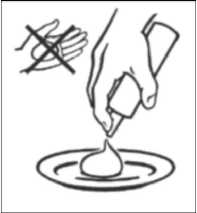
3. Massage the mousse into the affected areas of your scalp, and not your hair. Allow your hair to dry naturally.
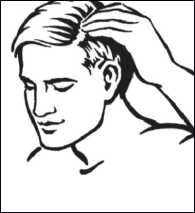
4. Wash your hands immediately after using the mousse.
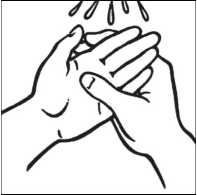
6. You can wash and dry your hair immediately before applying the mousse.
This product is flammable. Do not use Bettamousse near a naked flame or direct source of heat. Do not smoke while using or holding the can.
Medical check-ups
If you use this medicine for a long period of time, your doctor may ask you to have check-ups.
These are to make sure that your medicine is working properly and that the dose you are taking is right for you.
If you use more Bettamousse than you should
Wash your scalp straight away and start again. It is unlikely that you will suffer side-effects from using too much on one occasion. If you are concerned, contact the nearest hospital casualty department or your doctor.
Using more than the recommended dose of Bettamousse for a long time can lead to a number of side effects (see section 4).
If you forget to use Bettamousse
Do not use a double dose to make up for a forgotten dose. Simply take the next dose as planned.
If you stop using Bettamousse
Do not stop using Bettamousse without first talking to your doctor.
Your condition may return after you stop using Bettamousse. If this happens, talk to your doctor as soon as possible.
If you have any further questions on the use of this medicine, ask your doctor or pharmacist.
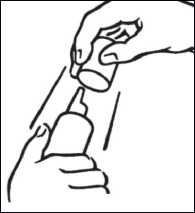
5. Do not wash your hair straight after applying the mousse. Let the mousse work overnight or through the day.
2. Turn the can upside down and squirt the required amount of mousse onto a clean saucer or something similar. The mousse melts when it touches your skin, so do not squirt it in to your hand.
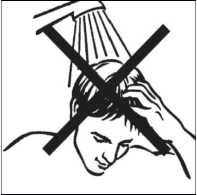
4. POSSIBLE SIDE EFFECTS
Like all medicines Bettamousse can cause side effects, although not everybody gets them.
Stop using Bettamousse and seek immediate medical advice if you have any of the following symptoms:
• Headache
• Stinging
• Itching.
Uncommon: may affect up to 1 in 100 people)
• Infection of the skin
• Thinning of the skin
• Marking of the skin (such as dark spots or lines)
• Red rash on the face
• Bruising easily.
Rare: may affect up to 1 in 1,000 people)
• Sensitivity reactions such as itching, redness and stinging
• Lighter or darker patches of skin
• Hair loss
• Infection of the hair follicles
• Red spots on the skin.
Not known: frequency cannot be estimated from the available data
• Worsening of the scalp condition, causing pus-filled ulcers to form
• Acne
• Purple stained skin
• Rash around the mouth.
Effects of using a high dose of Bettamousse for a long time:
• Extra hair growth
• Changes in skin colour
• Irregular periods in women,
• Water retention (bloated feeling)
• Mood changes or sleep problems
• Blurred vision or pain in the eye
• Stomach upsets or discomfort
• Acne
• Headaches.
These effects are more likely to happen in children, and if dressings are applied to cover the scalp after Bettamousse has been applied. The frequency of these effects on prolonged use is unknown.
Reporting of side effects
If you get any side effects, talk to your doctor, pharmacist or nurse. This includes any possible side effects not listed in this leaflet. You can also report side effects directly via the Yellow Card Scheme at www.mhra.gov.uk/yellowcard.
By reporting side effects, you can help provide more information on the safety of this medicine. United Kingdom: You catl also report side effects directly via Yellow Card Scheme on the MHRA website www.mhra.gov.ukfyellowcard).By reporting side effecrs you can help provide more information on the safety of this medicine
Ref: 1339/290616/1/B